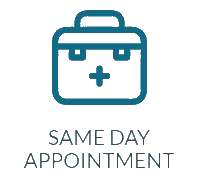Cardiac Stress Testing in Manhattan

What is a cardiac stress test?
A cardiac stress test, also known as an exercise stress test or treadmill test, is a test that evaluates how much stress your heart can manage before developing either an abnormal rhythm or evidence of ischemia (not enough blood flow to the heart muscle).
Why is an exercise stress test performed?
Your cardiologist may recommend a cardiac stress test in order to:
- Assess the function of the heart valves to make sure they are functioning properly
- Determine if there is adequate blood flow to the heart during increased activity levels
- Determine if you have an irregular heartbeat (arrhythmia testing)
- Determine the underlying cause of chest pain or breathing difficulties
- Test for heart disease
- Evaluate whether treatments you are taking for heart disease are working
- Test for coronary heart disease
- Develop a safe exercise program for you
The results of the test can be used to diagnose and guide treatment plans for conditions including:
- Coronary heart disease, also known as coronary artery disease
- Heart rhythm problems (arrhythmias)
What does an exercise stress test involve?
Prior to undergoing stress testing at our NYC facility, you may be asked not to eat, drink or smoke for at least two hours. You should also avoid caffeine for 24 hours before the test, as caffeine can interfere with test results. On the day of your test, you should wear comfortable, loose-fitting clothing and sneakers suitable for walking.
During a stress test, electrodes are placed on various areas of your chest. The electrodes are connected to an electrocardiograph (EKG) monitor, which charts your heart’s electrical activity during the test. Before you begin exercising, your blood pressure will be taken and a resting EKG will be performed in order to measure your resting heart rate. You will then be instructed to begin exercising (e.g. walk or run on a treadmill or pedal on a stationary bike) to make your heart work harder and beat faster. The intensity of the exercise will gradually increase. You will be asked to continue exercising until you are fatigued. Throughout the test, the EKG monitor will be closely watched for any changes that might suggest that the test should stop.
Once the test is completed, you will walk slowly in order to cool down. Your heart rate, blood pressure, and EKG will continue to be monitored until the levels return back to normal. Sometimes, you may also be asked to breathe into a special tube during the test. This allows our doctor to see how well you are breathing and measures the air you are exhaling.
The exercise portion of the test generally takes less than 15 minutes and the entire procedure is usually completed in about 1 hour. Once your exercise stress test is complete, you may resume your normal activities right away.
Schedule Your Consultation Today!
If you have any symptoms that may warrant a cardiac stress test, the first step is scheduling a consultation with our board-certified cardiologist at Park Avenue Medical Professionals. Our practice is known for our compassionate care and personalized approach. Schedule an appointment today by contacting our office at 212.427.2000. You can also make an appointment by filling out this form.



